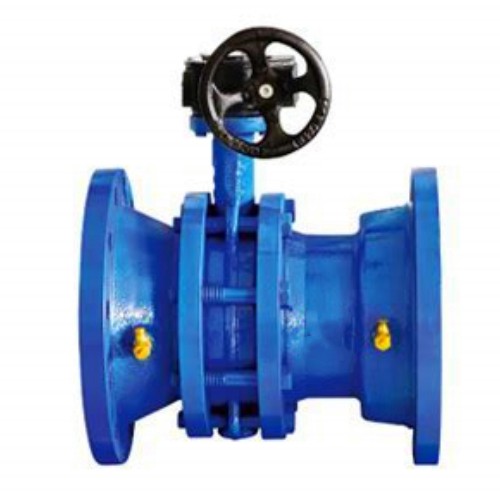Electric Actuated Gate Valve for Efficient Fluid Control and Automation Solutions
Understanding Electric Gate Valves An Essential Component in Modern Infrastructure
In the realm of fluid control systems, electric gate valves have emerged as a critical component in various industrial, commercial, and residential applications. These valves serve the essential function of regulating the flow of liquids and gases in pipelines, making them indispensable in numerous sectors including water treatment, oil and gas, chemical processing, and HVAC systems. In this article, we will delve into the functionality, advantages, applications, and maintenance of electric gate valves.
What is an Electric Gate Valve?
An electric gate valve is a type of valve that uses an electric motor to open and close its gate. Unlike traditional manual gate valves, which require physical effort to operate, electric gate valves provide automated control over the flow of media, making them highly efficient and convenient. The electric actuator connected to the valve enables precise positioning and remote operation, thus enhancing the overall functionality of the system.
How Do Electric Gate Valves Work?
The operation of electric gate valves is quite straightforward. When the electric actuator receives a signal from a control system or a human operator, it powers the motor, which rotates a screw mechanism. This action raises or lowers the gate within the valve body, allowing or blocking the flow of fluid. The gate is typically a wedge or slab that fits snugly in the valve seat, ensuring a tight seal when closed.
One of the key advantages of electric gate valves is their ability to provide a full, unobstructed flow when fully open, minimizing pressure losses in the system. This makes them particularly suitable for applications where flow efficiency is paramount.
Advantages of Electric Gate Valves
1. Automation and Control Electric gate valves can be integrated into automated control systems, allowing for remote operation and monitoring. This facilitates real-time adjustments to flow rates and enhances process control.
2. Precision With the ability to finely adjust the position of the gate, electric gate valves provide precise control over fluid dynamics. This precision is crucial in applications requiring strict adherence to flow specifications.
3. Safety Many electric gate valves are equipped with features such as fail-safe operations, emergency overrides, and position indicators. These features enhance safety and prevent potentially hazardous situations associated with fluid leaks or pressure surges.
4. Energy Efficiency Electric actuators can be designed to consume low power, contributing to overall energy savings. Additionally, the efficiency of electric gate valves helps reduce operational costs over time.
5. Reduced Labor The automation of gate operation reduces the need for manual intervention, thus saving labor costs and minimizing the risks associated with manual handling.
Applications of Electric Gate Valves
electric gate valve

Electric gate valves find application in various industries due to their versatility and efficiency. Some common applications include
- Water Treatment Facilities Used for controlling the flow in pipelines, these valves help manage the distribution of treated water.
- Oil and Gas Industry In this sector, electric gate valves are employed to regulate the flow of crude oil, natural gas, and refined products through pipelines.
- Chemical Processing The valves are used for the safe handling of aggressive chemicals, where precise flow control is essential.
- HVAC Systems Electric gate valves help manage water supply in heating and cooling systems, ensuring optimal HVAC performance.
Maintenance of Electric Gate Valves
Regular maintenance is crucial to ensure the longevity and reliability of electric gate valves. Some essential maintenance practices include
- Inspection Routine checks for corrosion, wear, and tear can help identify potential issues before they become significant problems.
- Lubrication Proper lubrication of the actuator and moving parts can prevent mechanical failure and ensure smooth operation.
- Calibration Periodic calibration of the actuator ensures that the valve functions accurately according to the control system specifications.
- Testing Regular testing of the valve’s response to commands helps to confirm that it operates as expected.
Conclusion
Electric gate valves are vital components in contemporary fluid control systems, offering numerous advantages including automation, precision, and energy efficiency. Their diverse applications across various industries underscore their importance in maintaining operational efficiency and safety. By understanding their functionality and implementing effective maintenance practices, industries can harness the full potential of electric gate valves to ensure optimal performance in their operations.
-
3-types-of-check-valves-maintenance-tipsNewsAug.23,2025
-
ball-valves-types-with-trunnion-mounted-designNewsAug.23,2025
-
butterfly-valve-company-production-capabilitiesNewsAug.23,2025
-
fisher-globe-valve-technical-specificationsNewsAug.23,2025
-
types-of-gaskets-for-flanges-selection-guideNewsAug.23,2025
-
wedge-gate-valve-suppliers-quality-standardsNewsAug.23,2025
-
Breakthrough in Domestic Low Temperature Valve Technology in ChinaNewsAug.18,2025




